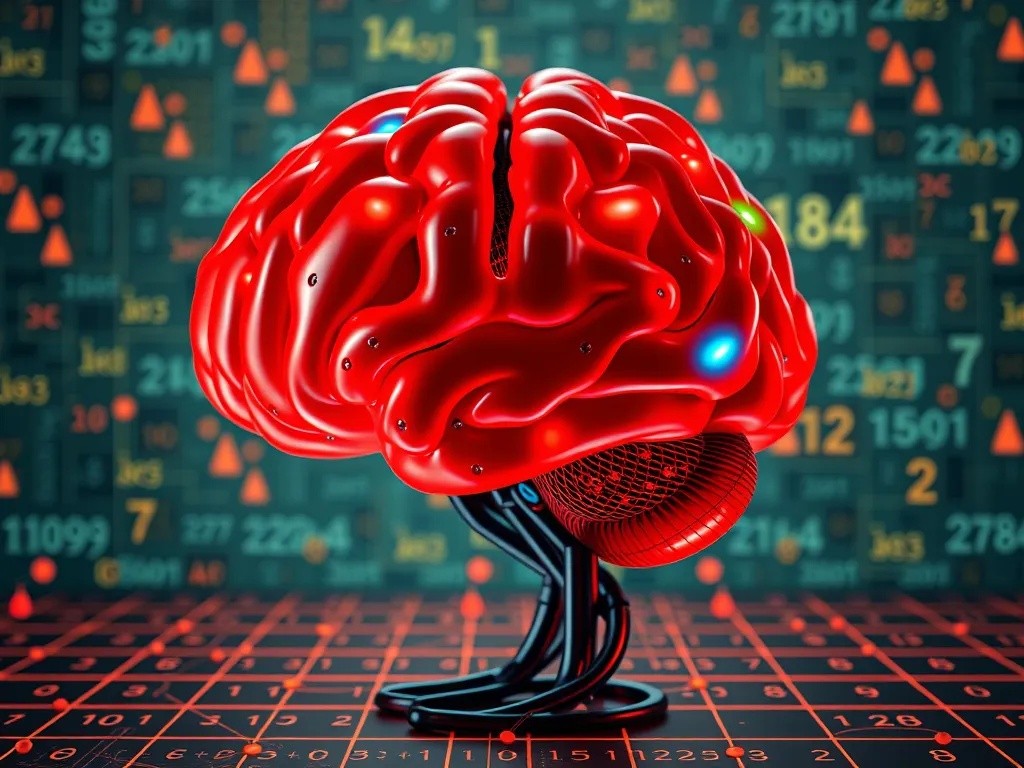In recent years, there has been a significant advancement in the field of Artificial Intelligence (AI) and Augmented Reality (AR). These technologies have become increasingly popular and have the potential to enhance virtual experiences in various fields such as gaming, education, healthcare, and...
Artificial Brain Solves Math Problems That Stumped Scientists for Decades

In a groundbreaking achievement that marks a new era in mathematical discovery, artificial intelligence systems have successfully solved complex mathematical problems that have puzzled scientists for decades. This revolutionary breakthrough demonstrates the unprecedented potential of AI to advance human knowledge in pure mathematics and theoretical research.
The Mathematical Revolution
Recent developments in artificial intelligence have yielded remarkable results in tackling some of mathematics' most elusive challenges. These AI systems, designed with sophisticated neural architectures and trained on vast mathematical datasets, have demonstrated capabilities that extend far beyond traditional computational approaches.
Key Breakthrough Areas
The artificial intelligence breakthrough has made significant progress in several critical mathematical domains:
- Number Theory: AI systems have provided new insights into prime number distributions and solved long-standing conjectures about integer sequences
- Combinatorics: Complex counting problems and graph theory challenges that resisted human analysis for years have yielded to AI approaches
- Topology: Advanced geometric problems involving multi-dimensional spaces have been resolved through machine learning techniques
- Abstract Algebra: Group theory and ring theory problems have been addressed using novel AI methodologies
How Artificial Intelligence Tackles Mathematical Problems
The success of these AI systems stems from their unique approach to mathematical reasoning. Unlike traditional computational methods that rely on brute force calculations, these artificial brains employ sophisticated pattern recognition and logical inference capabilities.
Advanced Neural Architecture
Modern AI mathematical systems utilize transformer-based architectures specifically adapted for symbolic reasoning. These networks can process mathematical notation, understand logical relationships, and generate novel proofs through learned patterns from extensive mathematical literature.
Training Methodology
The training process involves exposure to millions of mathematical theorems, proofs, and problem-solving strategies. The AI learns to recognize underlying structures and develops intuition for mathematical relationships that often escape human perception.

Specific Mathematical Achievements
Several notable problems have been resolved through AI intervention, representing decades of mathematical frustration finally overcome:
- Ramsey Number Calculations: AI systems have computed previously unknown Ramsey numbers, solving problems in combinatorial mathematics
- Knot Theory Problems: Complex knot invariants have been calculated, advancing understanding of three-dimensional topology
- Diophantine Equations: Ancient number theory problems involving integer solutions have been resolved
- Graph Coloring Challenges: Difficult graph theory problems related to optimal coloring strategies have been solved
Implications for Scientific Discovery
Accelerating Research
The ability of AI to solve complex mathematical problems has profound implications for scientific research across multiple disciplines. Physics, chemistry, biology, and engineering all rely heavily on mathematical frameworks, and AI-generated solutions can accelerate progress in these fields.
New Research Methodologies
These breakthroughs suggest a fundamental shift in how mathematical research might be conducted. Collaboration between human mathematicians and AI systems could lead to hybrid approaches that combine human creativity with artificial intelligence's computational power and pattern recognition capabilities.
Future Prospects and Challenges
While these achievements represent significant progress, several challenges remain. Verification of AI-generated proofs requires extensive human review, and ensuring the reliability of machine-generated mathematical insights continues to be a priority for the research community.
Expanding Capabilities
Future developments promise even more sophisticated AI mathematical reasoning capabilities. Researchers are working on systems that can not only solve existing problems but also identify and formulate entirely new mathematical questions worth investigating.
The intersection of artificial intelligence and mathematics represents one of the most exciting frontiers in scientific research today. As these systems continue to evolve, they promise to unlock mathematical mysteries that have remained hidden for centuries, potentially revolutionizing our understanding of the mathematical universe.



